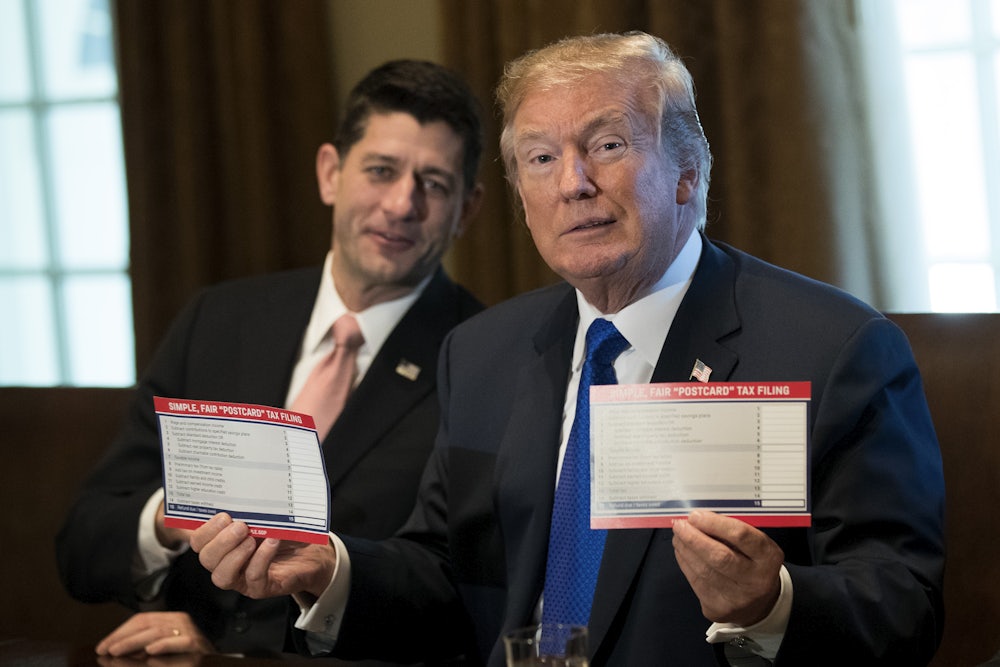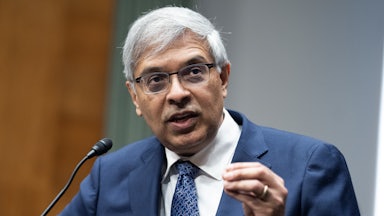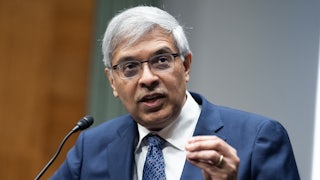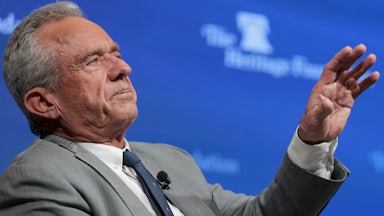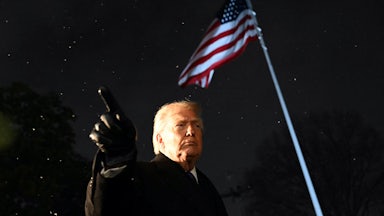“If men were angels,” James Madison wrote in Federalist 51, “no government would be necessary.” Similarly, if men were angels, we wouldn’t have to tax unrealized capital gains. It’s really awkward to tax an increase in the value of an investment that has not been cashed out. Doing so removes capital from the economy, and, if the value of the investment later falls, the justification for the tax may vanish. Also, a rise in an investment’s value doesn’t (usually) enable consumption the way cash income does. Given the choice between taxing unrealized income and taxing cash income, taxing cash income is almost always going to be better.
But men (and women) are not angels, especially rich men and women, most especially when they are required to pay taxes. They shift assets offshore and employ various other tricks to avoid paying anything like their fair share. This is equally true of corporations; if, as the Supreme Court argued in Burwell v. Hobby Lobby (2014), corporations are people, I think we can all agree that they aren’t very civic-minded people. Consequently, it’s necessary sometimes to tax their unrealized capital gains.
Charles Moore is a former software developer at Microsoft who lives in the Seattle area. He’s the son of Thomas Gale Moore, a senior fellow at the conservative Hoover Institution and author of a 1998 book titled Climate of Fear: Why We Shouldn’t Worry About Global Warming. Moore fils takes exception to the taxation of unrealized income. So, backed by the Competitive Enterprise Institute, where Moore père is a former board member, Moore fils sued the United States over a $15,000 tax bill he doesn’t want to pay. The Supreme Court will hear oral arguments in the case, Moore v. United States, on Tuesday.
The tax Moore doesn’t want to pay is called the mandatory repatriation tax, or MRT. It was imposed on his investment in an India-based farm equipment company called KisanKraft that was started by a friend and former Microsoft colleague. Moore says he’s never received “a distribution, dividend, or other payment” from the company and that consequently he shouldn’t have to pay the tax. The MRT was created as a “pay-for” for President Donald Trump’s 2017 tax cut, which very recklessly dropped the top individual tax rate from 39.6 percent to 37 percent and the top corporate tax rate from 35 percent to 21 percent. To help pay for this, the 2017 tax bill levied a one-time tax on American investors’ share of profits in companies located abroad. The provision was projected to raise $340 billion over 10 years. To answer your next question: No, this one-time tax doesn’t come close to filling the hole Trump’s tax cut blew in the federal budget. According to the Congressional Budget Office, the 2017 law will have cost the Treasury $3.5 trillion by 2034.
Coverage of Moore v. United States has tended to focus on the danger that the Supreme Court will declare a wealth tax unconstitutional before Congress gets around to passing one. But contrary to what you may have read elsewhere, a wealth tax isn’t the same thing as a tax on unrealized income. A wealth tax is a tax on what you have. A tax on unrealized income, by contrast, is a tax on what you acquired over the past year. It isn’t an everything tax, it’s an increase-in-value tax, which is why it’s best described as a kind of income tax. It’s certainly possible that a Supreme Court ruling, in addition to barring taxation of unrealized income, would also bar taxation of wealth. But these aren’t the same thing.
Instead of worrying what the Supreme Court might say about the constitutionality of some hypothetical wealth tax that’s unlikely ever to become law—and would anyway, in my view at least, be kind of a dumb idea—I invite you to worry what the Supreme Court might say about taxing unrealized income. You should worry about that because it isn’t hypothetical at all. Paul Ryan, who was the Republican House Speaker when the 2017 tax bill passed, has been arguing strenuously against Moore because he thinks a ruling in Moore’s favor would expand the budget deficit catastrophically. “I’m not for a wealth tax,” Ryan said at a Brookings Institution event last September, “but I think if you use this as the argument to spike a wealth tax, you’re going to basically get rid of, I don’t know, a third of the code.”
I leave the legal nuances to The New Republic’s Matt Ford, who wrote about Moore v. United States in September. I’m more interested in how Moore and his many supporters in this lawsuit (Landmark Legal Foundation, U.S. Chamber of Commerce, etc.) pretend no tax on unrealized income was ever conceived in the mind of man before a Republican president and a Republican Congress dreamed one up in 2017. “Until now,” said the Chamber in an amicus curiae brief, “realization has been the defining event that turns something from an asset holding value to income subject to federal tax.” A ruling in favor of taxing unrealized income, said the Landmark Legal Foundation in its amicus curiae brief, “would free Congress from nearly all constitutional restraints on the taxing power.”
Bullshit. As Ryan pointed out, Congress routinely taxed unrealized income well before 2017, and the sky did not fall. As Stephen M. Rosenthal of the nonprofit Tax Policy Center, a joint venture of the Urban Institute and Brookings, explained last fall, the first such tax dates to 1937, when Congress slapped a tax on unrealized gains from foreign personal holding companies established to dodge U.S. taxes. For much the same reason, Congress in 1962 slapped a tax on unrealized shareholder income in foreign subsidiaries of U.S.-based corporations. In 1969 Congress slapped a tax on unrealized gains from “zero-coupon bonds” that didn’t pay full interest until they matured. It did this to bring tax treatment of deducted interest in line with tax treatment of imputed interest. Taxing income not yet received was also part of a 1981 law shutting down tax straddles, a con that Treasury Secretary Don Regan was hip to because Merrill Lynch, where previously he’d been chairman, made a fortune off them. The Justice Department’s brief in opposition to Moore’s claim cites additional examples.
In all these cases, and in the case of the MRT, Congress resorted to taxing unrealized income in response to ethically unsound tax-avoidant behavior. As a rule, the IRS doesn’t ask civic-minded people to pay taxes on unrealized capital gains. President Joe Biden has proposed broadening the practice to people who might, at least in theory, be civic-minded (mostly very, very rich people). But Congress hasn’t taken the bait.
Is Charles Moore civic-minded? The Washington Post doesn’t seem to think so. In a Page One story this week, the Post’s Ann Marimow and Julie Zauzmer Weil report that Moore and his wife, Kathleen, “appear to have closer ties to the company central to the case than they disclosed in court filings.” For example, Moore served on KisanKraft’s board for five years, and he was reimbursed by the company $14,000 for a trip to India. That contradicts a filing in which the couple says they were “without any role in KisanKraft’s management.” It also undermines Moore’s posture in his lawsuit as a passive investor. That raises some question why this case is before the Supreme Court at all. It isn’t clear the Supreme Court will take Moore’s evasions into account.
“Man is conceived in sin and born in corruption,” observes Willie Stark in Robert Penn Warren’s All the King’s Men, “and he passeth from the stink of the didie to the stench of the shroud.” Granted, Stark is himself a morally compromised character modeled on Huey Long. But it’s not a bad rule of thumb when taxing the rich. I would like to live in a world where taxing unrealized capital gains was not necessary. But we’re a long way from that paradise today.
